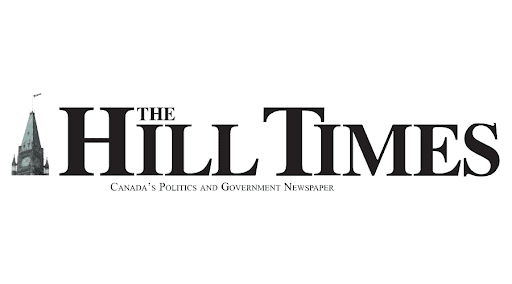We are in the midst of one of the greatest health and economic crises in more than a century. Policy-makers and business leaders are struggling to figure out how we can get the economy back on track while at the same time keeping people safe. We all are wishing we could “get back to normal,” but we have to remember that the old “normal” wasn’t great for everyone.
While we once had thought that the pandemic would be the great leveller because viruses don’t see wealth or gender or race, it turns out that, in fact, COVID-19 has laid bare the economic and social inequalities in our society.
In Canada, the people most likely to be affected by both the economic downturn and the threat of illness are those at the bottom of the income ladder, particularly women, Indigenous people and racialized minorities.
In Toronto, for example, the poorest neighborhoods are the hardest hit. And, when the strict stay-at-home orders were put in place, it led to an immediate decrease in cases in the wealthiest neighborhoods, but not elsewhere. This is because those in poorer areas cannot afford to stay at home. If they were not laid off, their jobs are more likely to be in service industries or care work that put their bodies in harm’s way. They often cannot afford to have groceries delivered and may live in housing situations that put them in direct contact with many other people.
So, in some ways, nothing could be worse than a return to normalcy. We need instead to think about how the grand rebuild that we are undertaking as a country, and as a world, can create a better, more equal society in which we heal the fractures that the coronavirus revealed.
One thing we know about crises: we are able to do things we never thought were possible. We can make changes that had been resisted in calmer moments. At my own employer, the Rotman School of Management, we had debated for years about whether we should add any online offerings for our courses. Imagine many (many!) committee meetings, studies and reports. Then, over one weekend in March, we moved all of our programs to online learning. Crises reveal that radical change is possible.
The Black Death in Europe in the mid-1300s created the conditions for the Renaissance. We have the opportunity to use this crisis to create our own rebirth. We can build back better.
As Arundhati Roy has written in her new essay, “The Pandemic is a Portal,” the pandemic is a chance to imagine the world anew. “It is a portal, a gateway between one world and the next. We can choose to walk through it, dragging the carcasses of our prejudice and hatred, our avarice, our data banks and dead ideas, our dead rivers and smoky skies behind us. Or we can walk through lightly, with little luggage, ready to imagine another world. And ready to fight for it.”
But, our window is short. If we don’t embed principles of gender equality, racial justice, and sustainability into the government and corporate recovery plans, we will have gone back to an “old normal,” only one that has been degraded by our experience in the pandemic. Our country will be worse off, not the same as in the past.
A more just recovery will also create a more resilient economy as we prepare ourselves for a 21st century that will bring only more crises, driven by global warming, political uncertainties and dislocations created by technological advance.
As a proud immigrant to Canada and a newly minted Canadian citizen, I believe that Canada can be a global beacon of light if we get our recovery right.
For government policy-makers—as detailed in the recent feminist economic recovery plan from my institute and the YWCA Canada—this means focusing on reconciliation and anti-Black racism as we strengthen social infrastructure. A good recovery will be an egalitarian recovery in which migrant workers can do their jobs safely, women are not held back because we don’t have adequate childcare and eldercare, rural citizens can access high-speed internet and clean water, small businesses—especially those led by women, Indigenous people and other marginalized communities—don’t get left behind, and everyone has adequate housing to keep them safe.
For businesses, this means rethinking how work is designed to accommodate everyone’s access to good jobs, reorienting priorities to consider social responsibility and not just the bottom line, and reconfiguring corporate governance to give a broader set of stakeholders a seat at the table.
Some might say that these changes are not feasible. But, this crisis makes all sorts of futures possible, so let’s imagine a more just one.
Sarah Kaplan is distinguished professor and director, Institute for Gender and the Economy at the Rotman School of Management and author of The 360º Corporation: From Stakeholder Trade-offs to Transformation. Last month the Institute for Gender and the Economy and YWCA Canada published A Feminist Economic Recovery Plan for Canada. https://www.feministrecovery.com/





